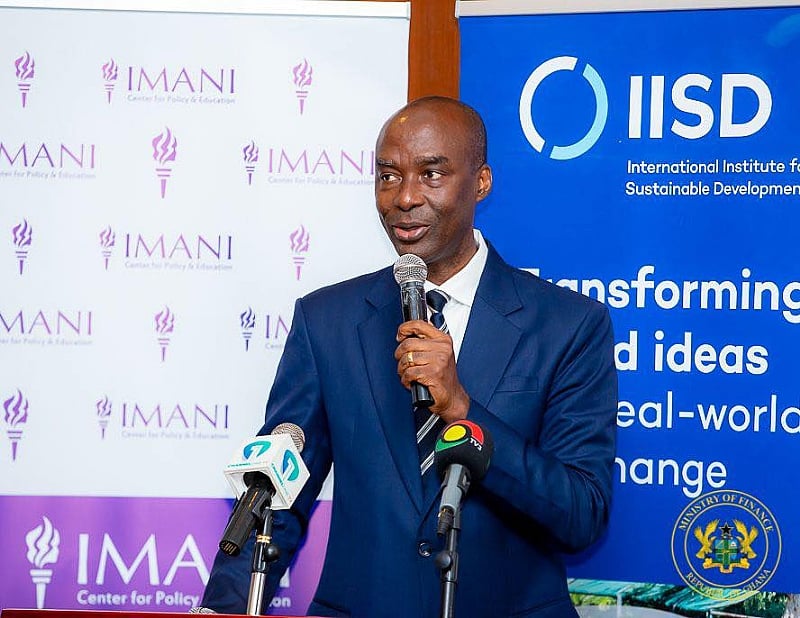Ghana’s Ministry of Finance is embarking on a significant overhaul of its public financial management system, spearheaded by the establishment of an independent Fiscal Council. This initiative, announced by Chief Director Patrick Nomo, aims to bolster transparency, accountability, and discipline in the management of public funds, ultimately contributing to macroeconomic stability. The council’s creation is backed by recent amendments to the Public Financial Management (PFM) Act, providing it with the necessary legal framework and authority to effectively oversee fiscal policy development and execution. This move signals a commitment to learning from past instances of mismanagement that have negatively impacted Ghana’s economic stability.
The Fiscal Council will function as a watchdog, scrutinizing the government’s fiscal policies and their implementation. This independent oversight is expected to strengthen the credibility of public finance management in Ghana, fostering greater trust among citizens, investors, and international partners. By providing objective and expert analysis of fiscal policies, the Council will contribute to more informed decision-making and prevent potentially detrimental fiscal measures. The council’s mandate includes monitoring compliance with fiscal rules, including a newly established debt-to-GDP ceiling, and evaluating the effectiveness of fiscal policies in achieving macroeconomic objectives. This independent scrutiny is crucial for holding policymakers accountable and ensuring fiscal sustainability.
The establishment of the Fiscal Council is part of a broader suite of reforms being implemented by the Ministry of Finance under the leadership of Dr. Cassiel Ato Forson. These reforms are designed to address systemic weaknesses in Ghana’s fiscal framework and promote sound financial management practices. The commitment to introducing enforceable sanctions for fiscal mismanagement further underscores the government’s commitment to addressing past shortcomings and preventing future occurrences. This accountability mechanism is crucial for deterring irresponsible fiscal behavior and fostering a culture of prudent financial management within the government.
A key element of these reforms is the introduction of new fiscal rules, including a debt-to-GDP ceiling of 45% targeted for 2034. This objective represents a significant undertaking, requiring disciplined fiscal management and sustained economic growth to achieve. The debt-to-GDP ceiling serves as a critical anchor for fiscal policy, ensuring that Ghana’s debt levels remain sustainable in the long term. By committing to this target, the government signals its intention to prioritize fiscal responsibility and avoid accumulating excessive debt burdens that could jeopardize future economic stability. The Fiscal Council will play a critical role in monitoring progress towards achieving this target and advising the government on necessary measures to stay on track.
The Ministry of Finance recognizes the urgency of these reforms and has prioritized the establishment of the Fiscal Council as a key step towards restoring macroeconomic stability. By strengthening oversight, enhancing transparency, and introducing enforceable sanctions, the government aims to create a more robust and resilient fiscal framework. This commitment to sound fiscal management is essential for attracting investment, promoting sustainable economic growth, and improving the overall well-being of Ghanaians. The expectation is that these reforms will gradually contribute to a more stable and predictable economic environment, fostering greater confidence in the government’s ability to manage public finances effectively.
In conclusion, the establishment of the independent Fiscal Council, coupled with the introduction of new fiscal rules and enforceable sanctions, represents a significant step towards strengthening Ghana’s public financial management system. By enhancing transparency, accountability, and oversight, these reforms are expected to restore fiscal discipline and promote macroeconomic stability. The Fiscal Council’s role as an independent watchdog will be crucial in ensuring the effectiveness and sustainability of these reforms, ultimately contributing to a more prosperous and resilient Ghanaian economy. This commitment to sound fiscal management sends a positive signal to investors, international partners, and the citizens of Ghana, demonstrating the government’s dedication to responsible and sustainable economic development.


